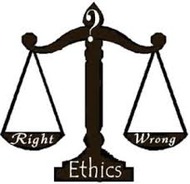
(View Complete Item Description)
Jim O'Toole, Senior Fellow at The Markkula Center for Applied Ethics, discusses financial fraud with David Jolley, Managing Partner for Markets, Ernst & Young.
How is it that "good people" do "bad things?" Three criteria are typically in play, according to Jolley: pressure, opportunity, and incentive. For those who work in the financial and securities industries, there is significant pressure to meet expectations. If companies fall short of expectations, the consequences can be devastating for a stock. What can CFO's do on practical terms to promote an ethical environment? The CFO sets the tone: do the right thing, be smart, and manage the numbers by managing the underlying business. Similarly, the CEO sets the tone as well, and consequently there needs to be the right balance between CFO and CEO. Even with Sarbanes-Oxley and learning from past business ethics pitfalls, the onus is still on the organization to maintain high ethical standards.
Material Type:
Lecture




















